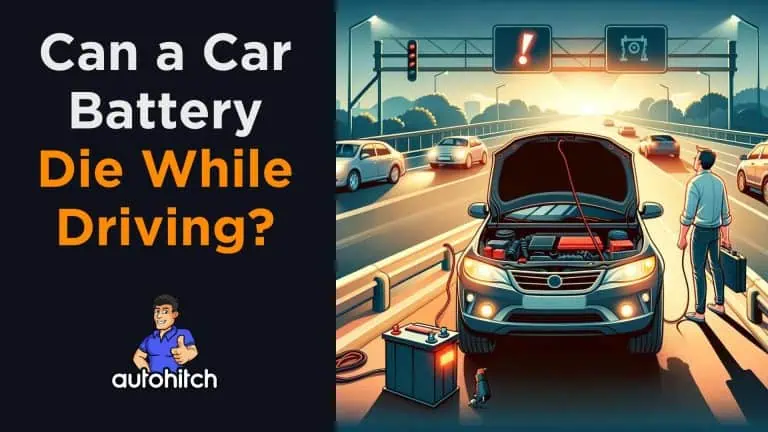Yes, it is possible for a car battery to die while you are driving, although it’s relatively rare. Here are some scenarios in which this can happen:
| Scenario | Description |
|---|---|
| Old or Faulty Battery | If your car battery is old, damaged, or faulty, it may not hold a charge properly, causing it to die while driving. |
| Charging System Issues | Problems with the alternator or voltage regulator can prevent the battery from being charged while the engine is running, leading to a drained battery. |
| Excessive Electrical Load | If your vehicle’s electrical systems are drawing more power than the alternator can supply, the battery may not get enough charge and eventually die. |
| Corroded Battery Terminals | Severe corrosion on the battery terminals can hinder the flow of electrical current, causing a loss of power and a dead battery. |
| Belt Issues | If the belt that drives the alternator breaks or slips, the alternator won’t be able to charge the battery, leading to a discharged battery. |
| Parasitic Battery Drain | Some vehicles may experience parasitic battery drains, where a component or system continues to draw power from the battery even when the car is turned off, eventually draining the battery. |
Table of Contents
Signs of a Dying Battery While Driving
If your car battery is dying while driving, you may notice the following signs:
- Dimming headlights or interior lights
- Reduced power to electrical accessories like the radio or power windows
- Illuminated battery warning light on the dashboard
- Slow cranking or difficulty starting the engine after stopping
Related Articles to Read:
- How Often Should You Change A Car Battery
- Alternator or Battery
- Is a Battery Covered Under Car Warranty
What to Do If Your Battery Dies While Driving
If your battery dies while you’re driving, it’s essential to take immediate action to ensure your safety and prevent further damage to your vehicle. Here are some steps you should take:
- Guide Your Car to the Side of the Road: As soon as you notice signs of a dying battery, safely pull over to the side of the road and turn on your hazard lights.
- Try to Restart Your Car: Wait for a few minutes and attempt to restart your car. If it starts, you may be able to drive to a nearby service station or mechanic.
- Call for Roadside Assistance: If your car won’t start, call for roadside assistance or a tow truck. Attempting to jump-start or drive with a dead battery can be dangerous and may cause further damage.
- Get Your Battery and Charging System Checked: Once you reach a service station or mechanic, have your battery and charging system (alternator, voltage regulator, etc.) inspected to identify and address the root cause of the issue.
To prevent your car battery from dying while driving, it’s essential to have it regularly checked and replaced when necessary. Additionally, addressing any issues with your charging system or electrical components can help ensure your battery stays charged and functioning properly.
How to Prevent Your Battery from Dying
Here are some tips to help prevent your car battery from dying while driving:
- Check for Loose or Corroded Battery Connections
Loose or corroded battery cable connections can prevent the battery from charging properly while driving. Clean the battery terminals and ensure the cable connections are tight. - Get the Charging System Tested
Have your alternator and voltage regulator tested to ensure they are working properly to charge the battery while the engine is running. A faulty alternator is a common reason for batteries dying while driving. - Replace an Old or Weak Battery
If your car’s battery is more than 3-4 years old, it may be nearing the end of its lifespan and should be replaced, even if it currently seems to be working fine. - Avoid Excessive Electrical Loads
Don’t run too many electrical accessories like the radio, lights, etc. when the engine is idling or just starting as this can drain power from the battery faster than the alternator can recharge it. - Take Your Car on Longer Drives
Short stop-and-go trips don’t allow enough time for the alternator to fully recharge the battery after starting. Take your car on a longer highway drive periodically. - Check for Parasitic Battery Drain
A “parasitic drain” from accessories or wiring issues can slowly discharge your battery even when the car is off. Have this tested if your battery keeps dying. - Maintain Your Battery Properly
Clean the battery terminals, keep them secured, and consider using a battery maintainer if your car will be sitting for long periods to prevent discharge.




